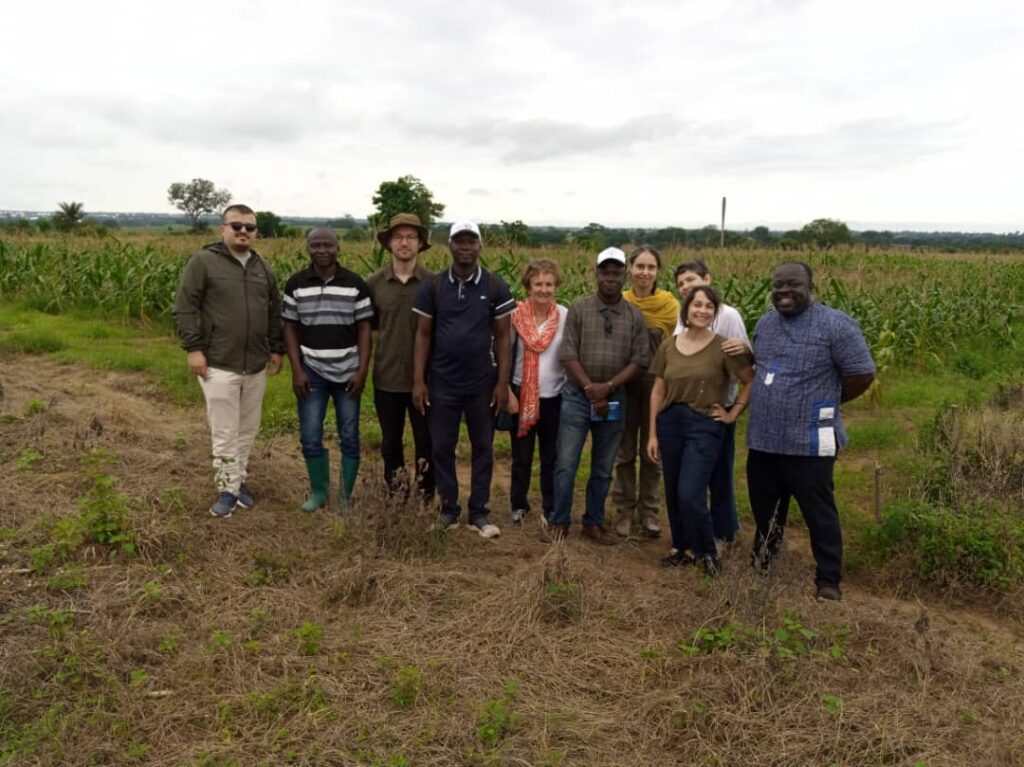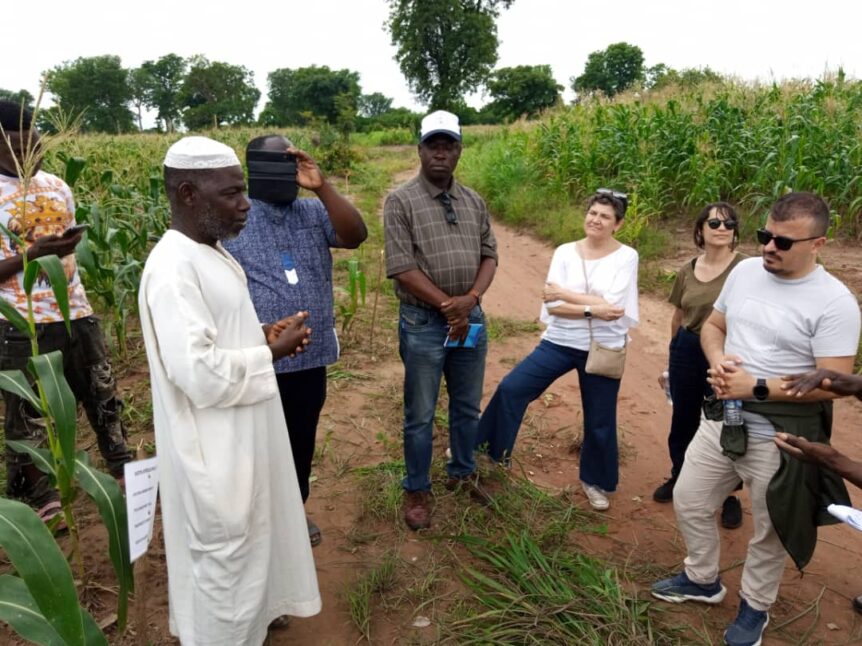SustInAfrica Workshops in Tunisia, Egypt, Niger, Burkina Faso, and Ghana
Background
The SustInAfrica project addresses multifaceted challenges affecting communities in Tunisia, Egypt, Niger, Burkina Faso, and Ghana. Issues such as low agricultural productivity, soil degradation, biodiversity loss, climate change impacts, and limited access to quality agricultural inputs contribute to meager incomes for farmers. Recognizing the interconnected nature of these challenges, the project adopts a participatory approach, involving farmers, researchers, and stakeholders in collaborative efforts to identify and implement sustainable solutions.
Building on preliminary data analyses, we conducted various workshops in 2023 across SustInAfrica’s project countries to delve into the current state of local farming systems and value chains, exploring practices and pathways recommended by local participants. The use of systems thinking tools facilitated the exploration of opportunities and challenges in applying agroecological practices (AEP) for sustainable agricultural intensification and increased sustainability in crop value chains.
Objectives
- Farming systems: The primary objective of the workshops was to collaborate with local stakeholders in validating data on existing farming systems as well as understanding the weaknesses of current local farming systems and the opportunities and barriers for agroecological intensification. The approach aims to unravel the interlinked challenges, demonstrate how AEP can mitigate problems, and identify strategies for effective implementation.
- Value chains: The workshops aimed to; 1) Introduce SustInAfrica, 2) Validate identified crops and stakeholders, 3) Identify challenges in crop value chain sustainability, mapping involved institutions, 4) Explore innovation points for sustainable crop value chains, including technology and labor conditions, 5) Identify potential partners, 6) Highlight existing supportive programs and relevant policies, and 7) Address specific issues defined by the local team.

Participants
The Workshops included a diverse group of 12 to 20 participants per workshop. Innovative individuals, including farmers, are particularly sought to bring unique perspectives to the discussions. In total, 14 workshops were conducted across the project countries with a total of 186 participants. Eight of these workshops addressed the strengths and weaknesses of existing farming systems, along with opportunities and obstacles for implementing agroecological practices and intensification. The remaining six workshops focused on evaluating the strengths and weaknesses of agricultural value chains, exploring opportunities, and identifying challenges for the development of more sustainable value chains. By engaging diverse stakeholders, the SustInAfrica workshops aimed to foster collaboration and innovative solutions for sustainable agricultural practices, laying the groundwork for positive change in these vital regions.

Activities
- The farming systems workshops commenced with a warm welcome to participants, setting the stage by introducing the goals and agenda. The scientific perspective on Agroecological Practices (AEP) and their impact on farming systems was presented, providing participants with a comprehensive overview. Each group was equipped with printed examples of AEP, stimulating discussions on the strengths, weaknesses, and threats of the current local farming systems. A mini survey involving all participants delved into the existing AEPs in the region and their impact on farms, contributing valuable insights. Group analyses focused on identifying opportunities for AEP, and addressing prevalent farming challenges. Further discussions honed in on the multifaceted challenges and barriers to AEP implementation, encompassing production, biophysical and ecological aspects, technical constraints, economic factors, market dynamics, social and cultural dimensions, and institutional/governmental influences. The workshops also incorporated a Multi-criteria Decision Analysis (MCDA) to facilitate decision-making and identify promising pathways for action. Finally, a group discussion synthesized the key themes and ideas that emerged from the small group discussions, fostering a collaborative and insightful exploration of sustainable agricultural practices.
- During the value chain workshops, participants engaged in a comprehensive exploration of the value chain (VC) process map presented in a paper, fostering a collective understanding of the intricacies involved. The focus then shifted to identifying key challenges across environmental, social, institutional, and economic dimensions, discerning weaknesses and threats in the value chain. Simultaneously, participants identified strengths, opportunities, and potentials within the value chain, categorizing them across the same dimensions. Through collaborative efforts, the group ranked the top challenges and potentials, providing a strategic focus for sustainability initiatives. Additionally, the workshops emphasized the identification of relevant social actors associated with the value chain, promoting a holistic approach to addressing challenges and leveraging opportunities for enhanced sustainability.
The workshops successfully identified various challenges and opportunities for agroecological intensification and sustainable value chains in SustInAfrica’s project regions, prioritizing collaboration and innovation. The results of the workshops will be introduced in another blog post – stay tuned.
Written by Pierre Ellssel.

